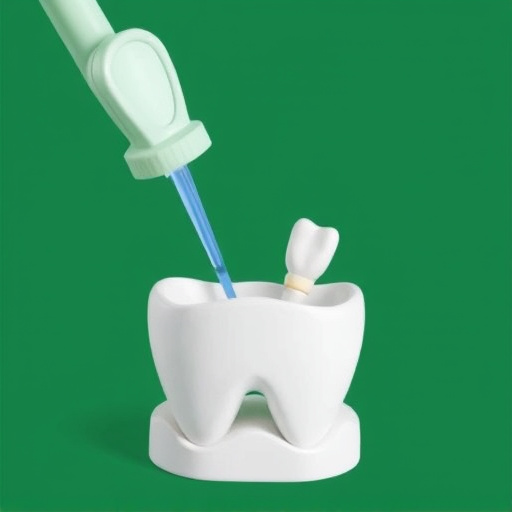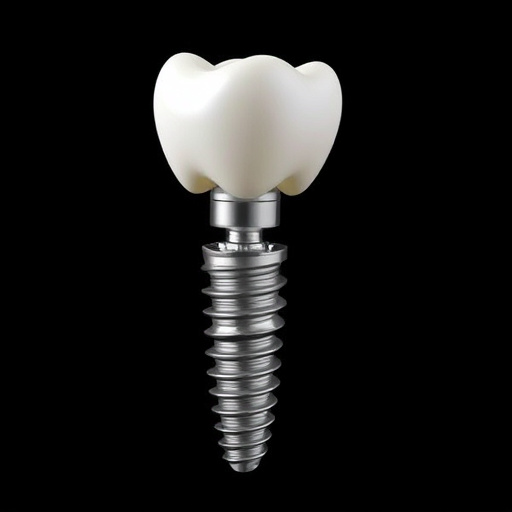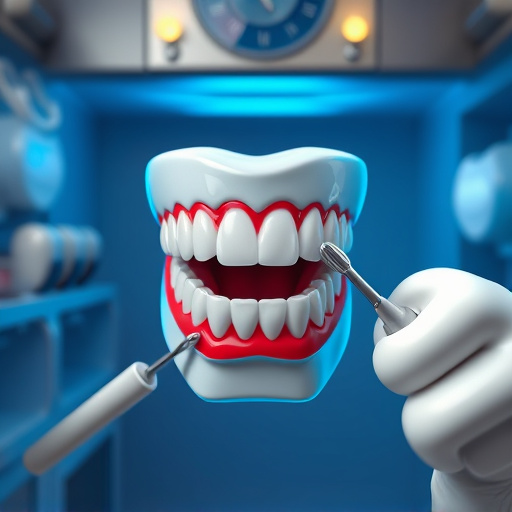Scaling and root planing are essential dental procedures that address issues below the gum line, where regular brushing and flossing cannot reach. Scaling removes hardened plaque and tartar, while root planing smooths tooth roots to eliminate bacteria. These treatments prevent periodontal disease, a leading cause of gum inflammation and bone loss, in both adults and children. By eliminating plaque and tartar, these procedures promote gum reattachment, preventing gingival recession. Regular scaling is also effective at preventing surface stains and reducing the risk of severe dental issues, minimizing the need for emergency care or extensive tooth repair.
Scaling and root planing are essential dental procedures for maintaining long-term oral health. This article delves into the fundamentals of these processes, explaining how they work and their significant benefits. We explore common conditions that necessitate scaling and root planing, emphasizing prevention strategies. By understanding these procedures, you’ll gain insights into achieving and preserving a healthy smile for years to come, reinforcing the importance of regular dental care, especially scaling and root planing.
- Understanding Scaling and Root Planing: The Basics
- Benefits of Regular Scaling and Root Planing for Oral Health
- When to Consider Scaling and Root Planing: Common Conditions and Prevention
Understanding Scaling and Root Planing: The Basics

Scaling and root planing are essential dental procedures that form a crucial part of maintaining long-term oral health. These treatments focus on removing built-up plaque, tartar, and bacteria from below the gum line, where regular brushing and flossing can’t reach. Scaling involves carefully removing the hardened plaque and tartar deposits from the teeth, while root planing smooths the tooth roots, eliminating any irregular surfaces that can trap bacteria.
Together, these processes help to prevent periodontal disease, a common condition marked by gum inflammation and potential bone loss. Regular visits to your dentist for routine oral exams, including scaling and root planing when necessary, are key to early detection and management of dental issues, even in children’s dentistry. This proactive approach ensures optimal tooth repair and maintains the overall health of your smile.
Benefits of Regular Scaling and Root Planing for Oral Health

Regular scaling and root planing are essential components of maintaining long-term oral health. These procedures help remove plaque and tartar buildup, which can cause gum disease and tooth decay. By eliminating these harmful substances, it becomes easier for gums to reattach to teeth, preventing gingival recession and promoting overall mouth wellness.
In the realm of restorative dentistry, scaling and root planing serve as a game-changer. This non-invasive treatment can ward off serious dental issues, reducing the need for more extensive procedures like dental crowns or cosmetic dentistry interventions. By keeping your gums healthy, these practices ensure that your teeth remain strong and functional, contributing to an attractive smile and enhancing overall quality of life.
When to Consider Scaling and Root Planing: Common Conditions and Prevention

Scaling and root planing are essential procedures for maintaining long-term oral health, especially when addressing specific conditions that require immediate attention. Many dental professionals recommend these treatments as part of a comprehensive dental care routine, targeting both the teeth and their supporting structures.
Common indications for scaling and root planing include periodontal disease, where bacteria accumulate below the gum line, causing inflammation and potential tooth loss. It is also recommended for individuals with heavy plaque buildup, deep pockets between gums and teeth, or after certain dental procedures like root canals. Preventively, regular scaling can remove surface stains and help maintain healthy gums, reducing the risk of more severe oral health issues that may require emergency dental care or extensive tooth repair.
Scaling and root planing are essential components of maintaining long-term oral health, offering significant benefits in preventing dental issues. By removing plaque and tartar buildup, these procedures promote healthier gums and teeth, reducing the risk of gum disease and other complications. Regularly addressing dental plaque through professional cleaning is key to optimal oral care, ensuring a bright and healthy smile for years to come.














